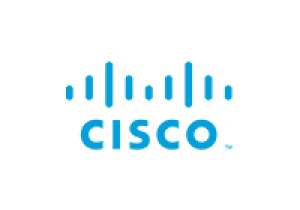The concept of smart cities, using ICT to provide, interconnect and improve the efficiency and effectiveness of basic urban infrastructures and human settlements more generally, is increasingly important. In most developed countries, and increasingly in the developing economies, the integration of ICT solutions to govern, support and manage a city’s assets, buildings, institutions, utilities, organizations and people, is emerging. For example, smart cities aim to coordinate and thus optimize transportation systems, hospitals, power plants, water supply networks, waste management, law enforcement, and other community services to increase both the efficiency and effectiveness of services. Digital government enables city officials to interact directly with each other as well as with citizens and businesses, link these to city infrastructures to improve the management of urban flows, and enable real time responses to problems. Through the use of sensors integrated with real-time monitoring systems, data is collected from both people and things through the IoT. The data is then processed and analyzed to enhance the quality, performance and interactivity of urban services, which thereby reduces both costs and resource consumption.
However, any adequate model for the smart city must also focus on the smartness of its citizens and encourage the processes, and especially social innovation processes, that make cities important. The danger of a one-size fits all, top-down view of urban development is underscored by the diverse needs of the inhabitants as individuals, households, neighborhoods, communities, organizations and businesses – that bring the city to life. Cities are, by definition, engines of diversity, so focusing solely on streamlining utilities, transport, construction and unseen government processes can be massively counter-productive. Instead, smart cities will be smart because their citizens have found new ways to craft, interlink and make sense of their own and each other’s assets, data and other resources through, for example, digital social innovation.
Videorecord
However, any adequate model for the smart city must also focus on the smartness of its citizens and encourage the processes, and especially social innovation processes, that make cities important. The danger of a one-size fits all, top-down view of urban development is underscored by the diverse needs of the inhabitants as individuals, households, neighborhoods, communities, organizations and businesses – that bring the city to life. Cities are, by definition, engines of diversity, so focusing solely on streamlining utilities, transport, construction and unseen government processes can be massively counter-productive. Instead, smart cities will be smart because their citizens have found new ways to craft, interlink and make sense of their own and each other’s assets, data and other resources through, for example, digital social innovation.
Videorecord
Sign in to ITAPA Health&Care 2025
Jeremy Millard
Jeremy Millard is director of the not-for-profit consultancy Third Millennium Governance, as well as having senior research positions at the Danish Technological Institute in Denmark and Bradford University in the UK. He has over forty years’ global experience on issues ranging from governance, technology, open and social innovation, participation and democracy, sustainable and socio-economic development and tackling poverty and exclusion. He also works on assignments relating to the sharing and circular economies, urbanization and nature-based solutions for growth and urban development. He has taught, presented and published extensively in these and many related fields. His clients include governments, the European Commission, United Na…
See more info about the speaker




















